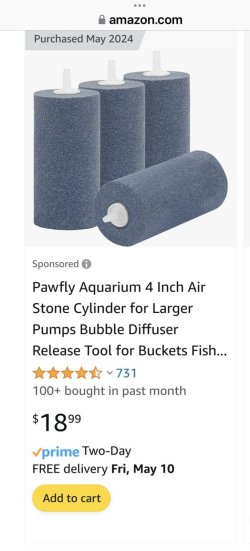BobbyZee
New Member
My current working theory, arrived at moments before Wills posted the same, remains unchanged. He expressed it better than I. Scroll back if you’re interested.
Yes, I will clean filter media as Colin describes going forward. Although the filters (and heaters) were not responsible.
Yes, I will clean filter media as Colin describes going forward. Although the filters (and heaters) were not responsible.


